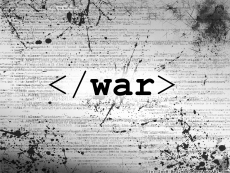
Email: ZYVC057@live.rhul.ac.uk
Total Article : 213
About Me:I'm a graduate student studying International Criminal Law and first started writing for King's News almost 4 years ago! My hobbies include reading, travelling and charity work. I cover many categories but my favourite articles to write are about mysteries of the ancient world, interesting places to visit, the Italian language and animals!

For as long as men have lived, our history has been filled with accounts of war. As Thomas Hobbes stated man is wolf to man, that is the very essence of humankind is an innate desire to fight one another in order to gain power. Once you have power you are safe and secure therefore war has been a means of survival for centuries, not only from one man to another but from one state to another to maintain security levels and protect civilians. Although numerous wars have scared the Earth, before engaging in any type of warfare there are some serious considerations we must look at. This article will aim to shed light on how politicians and military officials think when weighing up whether to start a war.
Prior to entering a war or engaging in any form of hostility, a political entity should always rationally consider the gains and losses a war can bring through a cost-benefit analysis. The benefits may include territorial gain, ideological imposition, an increase in resources and the protection of human rights. The costs of war are slightly more complex and require deep consideration. These include human, economic and socio-political costs such as: civilians wounded or killed, refugees, soldiers injured or killed, the financial cost of a war and its effect on a nation, erosion of civil liberties, covering the horrors of war and environmental costs (Costsofwar.org 2001). The stakeholders must also consider whether the war is justifiable or not as this will ultimately determine whether it is legally and publically acceptable. If you think about it, whenever states go to war they always try to prove that they are fighting for a greater cause, be it democracy or human rights, and that the war is a necessary means to defeat the evil enemy. Now this doesn’t mean it is true, it simply means that politicians need public support before entering a war when in reality wars are fought for many other egoistic reasons – such as the need for resources or a threat of power. In order to do politicians need to prove that the means need to be proportional to the end, in other words war must be undertaken as the last resort when all attempts of cooperation and conciliation fail.
Sun –tzu stated that ‘warfare is the greatest affair of the state, the basis of life and death, the Way to survival or extinction. It must be thoroughly pondered and analysed’. The diplomatic, information, military and economic (DIME) factors of a war must be considered thoroughly. Andress and Winterfeld (2014:7) elaborate that the diplomatic factors are centred around the set of communication between states of organisations; information is the ability to gain power through accessing vital resources and information; military involves governmental military power as an option, although today military fits into the realm of unconventional warfare not just physical harm; and lastly, economic, that is the power to influence the enemy through trade, incentives and other economic means of control. If all these elements are not considered, or if one enters a war without having access to all of these features, the prospect of winning a war is bleak as its very foundations are fragile.
As you can see, starting a war is not nearly as simple as starting an argument with a sibling, it requires deep considerations about how the general public will cope with war and how far our economy, intelligence service and technology can stretch. Yet, it seems to me that in all these considerations, we are missing the fundamental feauture of wars: humans. Yes, an estimate of losses of lives is made before entering a war but should we have to wait for the number to be too big before deciding against a war? Can we ever put a number on the value of a life? So, now that you know a little more about the thinking process that goes into premeditated warfare, even when these factors are tallied up do you think going to war can ever be justified?
Image: http://donatedominate.com/wp-content/uploads/2014/04/war.jpg

0 Comment:
Be the first one to comment on this article.